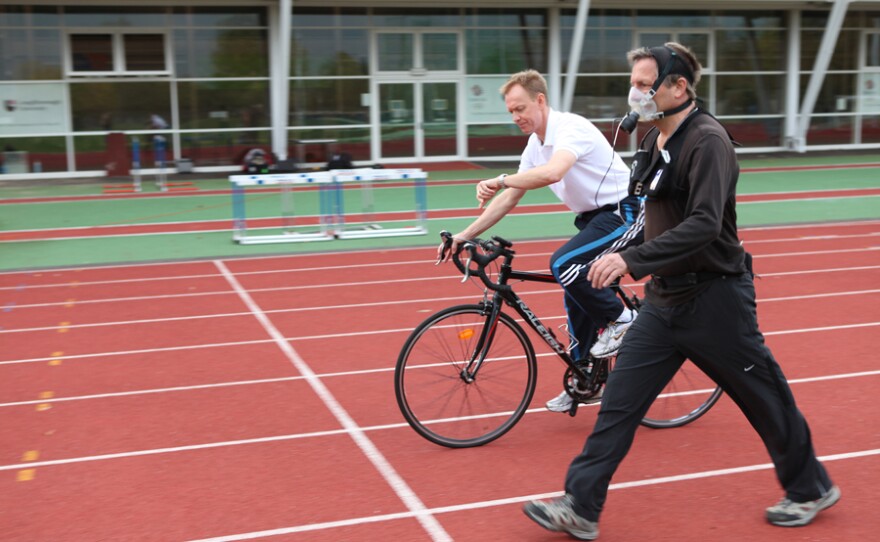We have always been told that regular exercise is one of the keys to a healthy, happy life, and, broadly speaking, the more exercise the better. But new research suggests that short bursts of intense exercise may be as effective as, if not better than, long periods of moderate exercise.


British journalist and physician Michael Mosley investigates, using himself as the guinea pig, whether humans can get exercise benefits from working out just three minutes a week. He also discovers that a one-size-fits-all approach to maintaining an active, healthy lifestyle is no longer the best that science can offer. With advances in genetic testing, scientists are uncovering new, surprising truths about what exercise really does to our bodies and why we all respond to it differently.
In "The Truth About Exercise," Mosley discovers a complex interplay between genes and environment. He also finds that to get the most out of exercise, people need to perform the right types of exercise, at the right time and in the right place.
This program was available for online viewing through Saturday, Sept. 7, 2013.
MORE MOSLEY:
KPBS originally aired this special in 2013 as part of a health, diet and exercise-focused science series that includes:
"Guts With Michael Mosley" - repeats Wednesday, Nov. 4, 2015 at 11 p.m.
"Eat, Fast And Live Longer With Michael Mosley" - repeats on Wednesday, Nov. 11, 2015 at 11 p.m.
"10 Things You Need To Know About Losing Weight" (no broadcast date)
Follow @DrMichaelMosley on Twitter. "The Fast Diet" is on Facebook, and you can follow @TheFastDietBook on Twitter.






